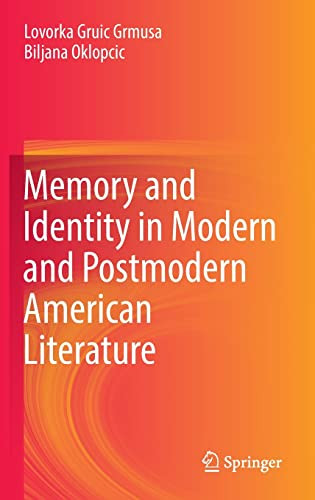

Most ebook files are in PDF format, so you can easily read them using various software such as Foxit Reader or directly on the Google Chrome browser.
Some ebook files are released by publishers in other formats such as .awz, .mobi, .epub, .fb2, etc. You may need to install specific software to read these formats on mobile/PC, such as Calibre.
Please read the tutorial at this link: https://ebookbell.com/faq
We offer FREE conversion to the popular formats you request; however, this may take some time. Therefore, right after payment, please email us, and we will try to provide the service as quickly as possible.
For some exceptional file formats or broken links (if any), please refrain from opening any disputes. Instead, email us first, and we will try to assist within a maximum of 6 hours.
EbookBell Team

4.4
52 reviewsThis book discusses how American literary modernism and postmodernism interconnect memory and identity and if, and how, the intertwining of memory and identity has been related to the dominant socio-cultural trends in the United States or the specific historical contexts in the world. The book’s opening chapter is the interrogation of the narrator’s memories of Jay Gatsby and his life in F. Scott Fitzgerald’sThe Great Gatsby. The second chapter shows how in William Faulkner’sLight in Augustmemory impacts the search for identities in the storylines of the characters. The third chapter discusses the correlation between memory, self, and culture in Tennessee Williams’sA Streetcar Named Desire. Discussing Robert Coover’sGerald’s Party, the fourth chapter reveals that memory and identity are contextualized and that cognitive processes, including memory, are grounded in the body’s interaction with the environment, featuring dehumanized characters, whose identities appear as role-plays. The subsequent chapter is the analysis of how Jonathan Safran Foer’sEverything Is Illuminateddeals with the heritage of Holocaust memories and postmemories. The last chapter focuses on Thomas Pynchon’sAgainst the Day, the reconstructive nature of memory, and the politics and production of identity in Southeastern Europe.